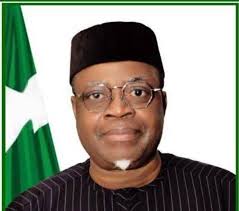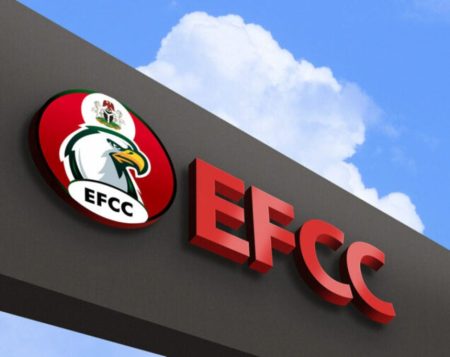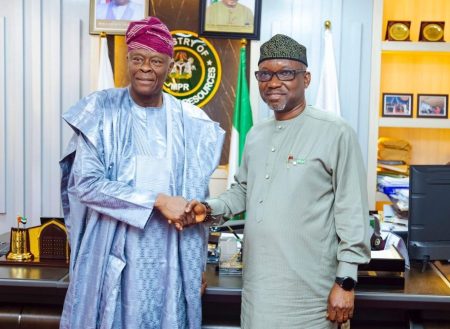 03 February 2013, Sweetcrude, Lagos – Nigeria’s oil industry workers are insisting on the correction of some “faulty” aspects of the Petroleum Industry Bill, PIB, currently awaiting passage into law by the national legislature.
03 February 2013, Sweetcrude, Lagos – Nigeria’s oil industry workers are insisting on the correction of some “faulty” aspects of the Petroleum Industry Bill, PIB, currently awaiting passage into law by the national legislature.
But, they are also insistent that despite flaws in the bill, the document must not be thrown away, but should rather be amended to address the flaws before passage by the National Assembly.
President of the Petroleum and Natural Gas Senior Staff Association of Nigeria, PENGASSAN, Comrade Babatunde Ogun, identified as faulty the absence of labour issues relating to staff transfer, conditions of service, severances, pensions and gratuities in the bill, alleging that they were deliberately left out by those who crafted the bill.
On his part, president of the National Union of Petroleum and Natural Gas Workers, NUPENG, Comrade Igwe Achese, expressed worry on “the scanty provisions made in the PIB on the downstream petroleum sector, especially in the area of refining,” which, according to him, does not adequately provide enough incentives to engender local refining of products.
The union leaders, in separate interviews, expressed worry also that the bill purportedly premised on transparency and accountability does not guarantee the transparency and accountability objectives the bill stands for. There is need to strengthen the transparency and accountability provisions of the bill, they said on behalf of the unions.
For the oil workers also, the bill should ensure a balance between government’s stake and investor interests in the oil and gas industry to guarantee continued growth of the sector.
The unions also condemned what they described as excessive powers accorded the Minister of Petroleum Resources and the President in the PIB, demanding the reduction or removal of such powers.
Commenting further on the absence of labour issues in the bill, Ogun noted that this was so because of the non-representation of NUPENG and PENGASSAN on the boards of institutions and agencies in the oil and gas industry.
He identified these institutions and agencies to include the Nigerian Content Development and Monitoring Board, NCDMB; Petroleum Training Institute, PTI; Petroleum Products Pricing and Regulatory Agency, PPPRA, Petroleum Equalisation Fund, PEF; Petroleum Technology Development Fund, PTDF; Department of Petroleum Resources, DPR, insisting that PENGASSAN and NUPENG should be represented in the pre-PIB and post-PIB membership of boards of the institutions and agencies.
Speaking on other issues affecting the industry, the PENGASSAN president frowned at the continued importation of refined petroleum products, saying that effort should be made to at least refine 30% of crude produced by the oil companies in Nigeria to encourage downstream petroleum development.
On his part, NUPENG president, Comrade Achese noted with dismay the prostrated fuel shortage in the country over the years and the resultant sale of petroleum products above official pump prices.
He called on the Federal Government to take appropriate measures to address the situation in the interest of the nation. He added that government should provide more incentives to encourage investments in the downstream sector, especially building of refineries by investors.
He said the scanty provisions made in the PIB on the downstream petroleum sector, especially in the area of refining, does not adequately provide enough incentives that would engender local refining. To actualise this, the union chief urged government to embark on immediate commencement of the Turn Around maintenance (TAM) of the existing refineries as earlier pronounced by the Federal government during the January 2012 fuel subsidy crisis so as to increase local refining capacity, improve availability of petroleum products and ensure job creation and security.
On Mallam Nuhu Ribadu reports on petroleum revenue and the Kalu Idika Kalu reports on refineries, the oil workers disagreed with any recommendation that would decimate or further delay comprehensive TAM of the refineries. They described as uncalled for, the idea of balkanising the products pipeline under the name of unbundling.
The oil workers called on government at all levels to make known projects executed with specific cost details of their allocations from money realised from SURE-Programme as promised by the Federal Government, noting with dismay that this allocation has not impacted on any aspect of infrastructure in any state as promised.
NUPENG and PENGASSAN also frowned at the refusal of the Minister of Petroleum Resources, Diezani Alison-Madueke to release the recruitment/appointment letters of those who were successful in the recruitment exercise at the DPR for the past two years despite the issuance of certificate of compliance by the Federal Character Commission (FCC). The workers, therefore, demanded that appointment letters be issued without delay to successful candidates.
The workers also warned against excessive burden of taxation on its members and the generality of workers as they lamented that rather than address the inadequate reliefs in the old Personal Income Act, government deceitfully used the Personal Income Tax Amendment Act of 2011 to further aggravate the tax burden on workers.
The oil workers demanded that government amended the Personal Income Tax Amendment Act of 2011 to provide adequate reliefs to lessen the burden of workers.
The observation of the two unions on the excessive powers accorded the Minister of Petroleum Resources in the PIB falls into place with that of National Vice President of the Nigerian Chambers of Commerce, Industry, Mines and Agriculture, NACCIMA, Mr Billy Harry who recently condemned the powers the bill seeks to accord the minister, especially as it concerns award of oil blocks.
Harry, who is also the chairman of the South-South Chambers of Commerce, Industry, Mines and Agriculture, SSCCIMA, and chairman of Bilview Energy Group, said: “Clearly, I would say that it should not be the responsibility of one individual to give out national licence. There should be a collective mechanism where the regulators and the executive are parts of the process.
“It should not be just the Minister of Petroleum. So, there should be checks and balances to avoid a situation where one individual will become very draconian and very narrow-minded on issue of national interest.
“I think the Minister of Petroleum should not have so much power as to determine and be the final authority in awarding oil blocks because there is a regulatory department that is empowered to do so. The Department of Petroleum Resources, which is responsible for the award of oil blocks, is there. The National Asset Management is there. The executive is also there”.



